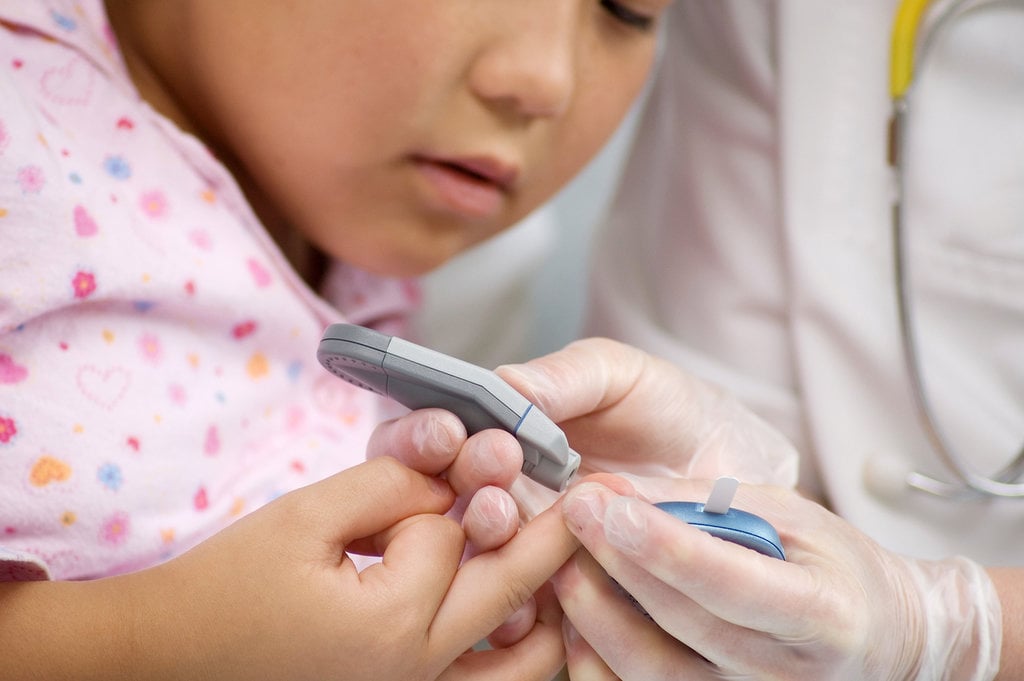
DiYES International School – Diabetes cases among children have been rising at an alarming rate in Batu City, with an increasing number of children under 15 diagnosed with the condition. In 2024 alone, health officials recorded a shocking 50 children diagnosed with diabetes after screening 2,157 children in the city. This alarming statistic reflects a troubling trend that highlights the growing threat of diabetes, no longer limited to adults but now affecting younger generations.
As the number of cases continues to rise, the local health authorities are sounding the alarm about the importance of early detection, prevention, and lifestyle changes to combat this emerging crisis. Health experts, including Dr. Susana Indahwati, Head of Disease Prevention and Control at Batu City Health Office, stress the need for public awareness about the dangers of diabetes in children and how crucial it is to address this health challenge before it escalates further.
This new wave of diabetes in children is not only concerning but also brings to light the need for better prevention programs, early screenings, and a shift towards healthier lifestyles in the community. It is clear that diabetes is no longer an issue that only impacts adults; it is becoming a significant health concern for the younger generation as well.
Dr. Susana Indahwati, Head of the Disease Prevention and Control Department at Batu City’s Health Office, highlighted that 2,157 children underwent screening for diabetes in 2024. Out of this number, 50 children were found to have diabetes, marking a shocking revelation for the city’s medical community. The screening also identified additional children with pre-diabetes, further emphasizing the prevalence of this condition among the youth.
Dr. Indahwati explained that diabetes cases in children were categorized into two main groups: those diagnosed with diabetes and those diagnosed with pre-diabetes. The distinction is made based on blood sugar levels measured during the screening process. Children diagnosed with diabetes have blood sugar levels higher than 200 milligrams per deciliter, while those in the pre-diabetic range show blood sugar levels between 140 and 200 milligrams per deciliter.
“Read about: The Hidden Impact of Social Media on Indonesian Children’s Mental Health”
Dr. Susana went on to explain the two primary types of diabetes affecting children: Type 1 and Type 2 diabetes. Type 1 diabetes occurs when the immune system attacks the pancreas and impairs its ability to produce insulin. Type 2 diabetes often links to lifestyle factors and causes the body to resist insulin. The increasing number of children diagnosed with both types of diabetes in Batu City highlights the growing concern for children’s health in the region.
Several factors contribute to the rise in diabetes cases among children. Dr. Indahwati cited poor eating habits, genetic predisposition, and the influence of medications as key factors in the development of diabetes in children. In particular, diets high in processed foods and sugary drinks, coupled with a lack of physical activity, contribute to the increasing risk of diabetes among younger individuals.
Dr. Susana stressed that the wider community must be more vigilant about the growing threat of diabetes, as it no longer affects only adults. The shift in demographics calls for greater awareness, prevention, and intervention measures to address the root causes of this disease in children.
The early detection of diabetes in children is critical for effective treatment and management. Dr. Susana explained some of the common signs and symptoms that parents should be aware of, including excessive thirst, frequent urination, unexplained weight loss, and fatigue despite adequate rest. If parents notice any of these symptoms, they should seek medical attention promptly to enable early diagnosis and intervention.
“Read more: The Values of Politeness to Instill in Children from an Early Age”
To combat the growing number of diabetes cases in children, Batu City’s Health Department has implemented a series of preventive initiatives. These include widespread educational campaigns aimed at schools and public spaces, promoting healthier lifestyles through the “Healthy Living Community Movement” (Germas). The goal is to increase awareness about the importance of a balanced diet, regular exercise, and maintaining a healthy weight.
Dr. Indahwati emphasized that lifestyle changes can often prevent diabetes in children. Encouraging healthy eating habits, physical activity, and stress management can help avoid many cases of diabetes. Furthermore, early screening programs are essential for detecting diabetes in its early stages, which significantly improves the effectiveness of treatment and management.
Through these proactive measures, Batu City aims to reduce the prevalence of diabetes among children and mitigate its long-term effects on the health of future generations.